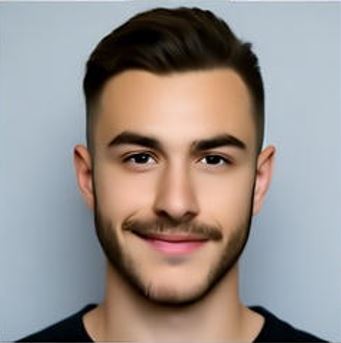Pope election in the conclave: Who will be Francis' successor?
The search for the new pope after the death of Francis begins. Who are the favorites and how is the election going?
Pope election in the conclave: Who will be Francis' successor?
On Easter Monday, April 21, 2025, Pope Francis died at the age of 88. His death results in a sedevacancy, the condition in which the College of Cardinals is in charge of the Catholic Church until a new pope is elected. The process of selecting his successor has already begun, with the election expected between May 5 and 10, 2025. The upcoming papal election will be carried out in a conclave, which brings together the cardinals for this important decision.
Currently, 137 of the 252 cardinals are eligible to vote, as only cardinals under the age of 80 are allowed to take part in the election. These individuals have the difficult task of determining the leader of the Catholic Church, choosing from a variety of possible candidates. Pietro Parolin, the 70-year-old Cardinal Secretary of State and loyal supporter of Francis, is considered the favorite for the papacy. Parolin will also preside over the conclave, as the current dean, Giovanni Battista Re, and his deputy are over 80 years old.
Possible candidates and their profiles
The list of possible candidates includes some prominent names who are considered “papabile”:
- Pierbattista Pizzaballa, 60 Jahre alt, Patriarch von Jerusalem, bekannt für seine diplomatischen Bemühungen im Nahen Osten.
- Matteo Zuppi, 69 Jahre alt, Vorsitzender der italienischen Bischofskonferenz, beliebt für seine Netzwerke und seinen Einfluss.
- Peter Erdő, 72 Jahre alt, Erzbischof von Esztergom-Budapest, kritisch gegenüber den Reformen von Franziskus.
- Luis Antonio Tagle, 67 Jahre alt, ehemaliger Erzbischof von Manila, angesehen als potenzieller asiatischer Kandidat.
- Fridolin Ambongo Besungu, 65 Jahre alt, Erzbischof von Kinshasa, konservativ und skeptisch gegenüber westlichem Einfluss.
- Raymond Burke, 76 Jahre alt, ehemaliger Erzbischof von St. Louis, als eher unwahrscheinlich für das Papstamt angesehen.
- Jean-Marc Aveline, Erzbischof von Marseille, bekannt für seine volksnahe Haltung.
- Jean Claude Hollerich, 66 Jahre alt, Erzbischof von Luxemburg, einflussreich im Vatikan.
- Mario Grech, 68 Jahre alt, Generalsekretär der Bischofssynode, hat sich von konservativ zu reformfreundlich bewegt.
- Juan José Omella, Erzbischof von Barcelona, 1946 geboren, für seine sozialen Gerechtigkeitsinitiativen bekannt.
Election process and challenges
The electoral process in the Vatican is highly regulated. The election must begin with a Holy Mass in St. Peter's Basilica, followed by the entry of the cardinals into the Sistine Chapel. The election itself is carried out by secret ballot, with the votes being counted after each round of voting. If a candidate does not achieve the required two-thirds majority, several rounds of voting are necessary to elect a new pope. Theoretically, the election can last indefinitely, depending on the number of ballots required.
After the election, the result is indicated by smoke signals - black smoke means that no new pope has been elected, while white smoke signals the successful election. The new pope is then asked whether he would like to accept the papacy and serve under a new name. This ancient tradition of electing the Pope is gaining new importance and attention, especially in times when the Catholic Church is facing challenges worldwide.
With the death of Pope Francis and the upcoming election, expectations are high and the eyes of the world are on the Vatican as the cardinals prepare for their crucial role in the conclave.

 Suche
Suche
 Mein Konto
Mein Konto
